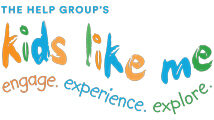
As this unprecedented and challenging year comes to an end, it is extremely important to keep in mind that many children are experiencing what is now coined “Zoom Fatigue” as a consequence of distant learning due to Covid-19. Dr. Jena Lee indicates that Zoom fatigue “describes the tiredness, worry, or burnout associated with overusing platforms of communication.” Many of our families have described that their children or teens may feel overwhelmed with multiple Zoom sessions daily and want to be sure to keep their children mentally, emotionally and physically healthy during this pandemic. Here are 5 strategies that the Kids Like Me team finds effective in helping our clients overcome Zoom Fatigue.
Be mindful of the environment where your child or teen participates in their Zoom Sessions.
• Avoid having the sessions in a bedroom as they may be tempted to lay down or go to sleep if they are comfortable in our beds. Plus, beds should be associated with sleep only, in order to maintain good sleep hygiene.
• Change up where the Zoom sessions take place; get outside if your Wi-Fi connection will allow.
Establish a routine and stick to it!
• Routines are important even during Winter Break. The absence of a schedule or routine may throw children and teens off. Our clients thrive in structured, predictable environments, so the more parents can maintain one, the better the whole family will feel.
Schedule Movement and Sensory breaks
Here are some great ideas shared as part of our partnership with the USC Occupational Therapy Department which target vestibular movements:
• Blanket Burrito - Also provides deep pressure (not prop - unless child actively rolls themselves in it)
• Skateboarding or scooters
• Swing (if you have one in their backyard)
• Jump-Spins: Choose different objects in the room and ask your child to jump and spin to point at the object you’ve called out. For example, you might choose TV, Chair, Window, Table. This activity not only stimulates the vestibular system, but it also builds vocabulary.
• Pick-Up Sticks: Place ten objects on the ground and ask your child to pick each one up and place it in order on a low table. The repeated bending movement and inversion is a great way to stimulate the inner ear. Plus, if you use objects that your child is interested in, like toy cars or baseball cards, the activity can also function as a rewards-based activity.
• Yoga
• Bouncing on a therapy ball
Make a sensory toolbox to use during Zoom sessions that includes:
• Fidget spinners
• Stress balls
• Chewing gum
• Snacks or something to drink before or after Zoom sessions
Offer device free afternoons once all Zoom sessions are completed
• Get outside
• Go for a walk, hike or bike ride
• Do a family nature scavenger hunt
• Practice mindfulness, breathing techniques and yoga poses to help manage stress and anxiety.
• Take a nap! Sleep is very important for children in these stressful times

Nicole Webb, LMFT
Kids Like Me Program Director
Nicole Web is Kids Like Me Program Director, is a registered Marriage and Family Therapist (MFT) She has worked with children extensively over the past fifteen years as a therapist, behaviorist, and camp director. Nicole received a Master of Science degree in Marriage and Family Therapy from the University of Southern California and a Bachelor of Arts degree in Child and Adolescent Development and Psychology from California State University, Northridge.
In 2010, Nicole began her work at The Help Group as the Program Director for Kids Like Me, working closely with children and teens with autism spectrum disorder and other special needs. Nicole’s dedication to promoting autism awareness throughout the community has prompted her to give a number of presentations at local universities and organizations. She has also spoken internationally on topics related to autism and treatment modalities.
